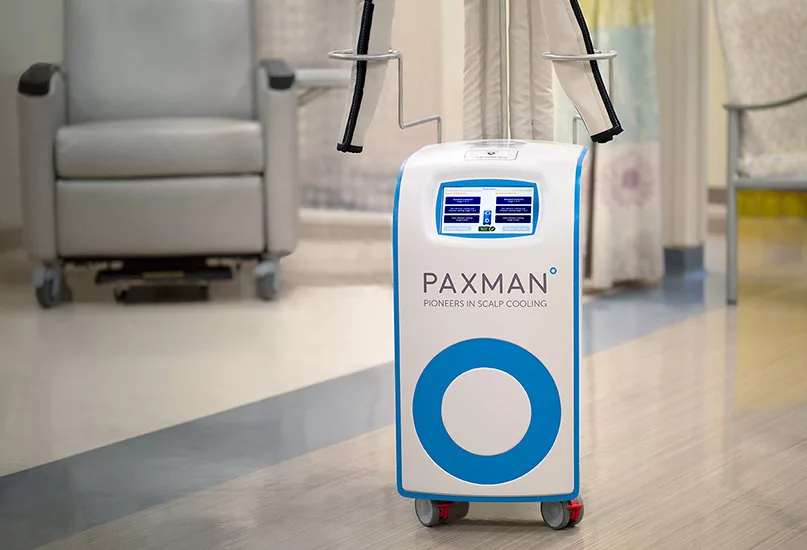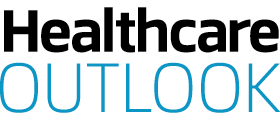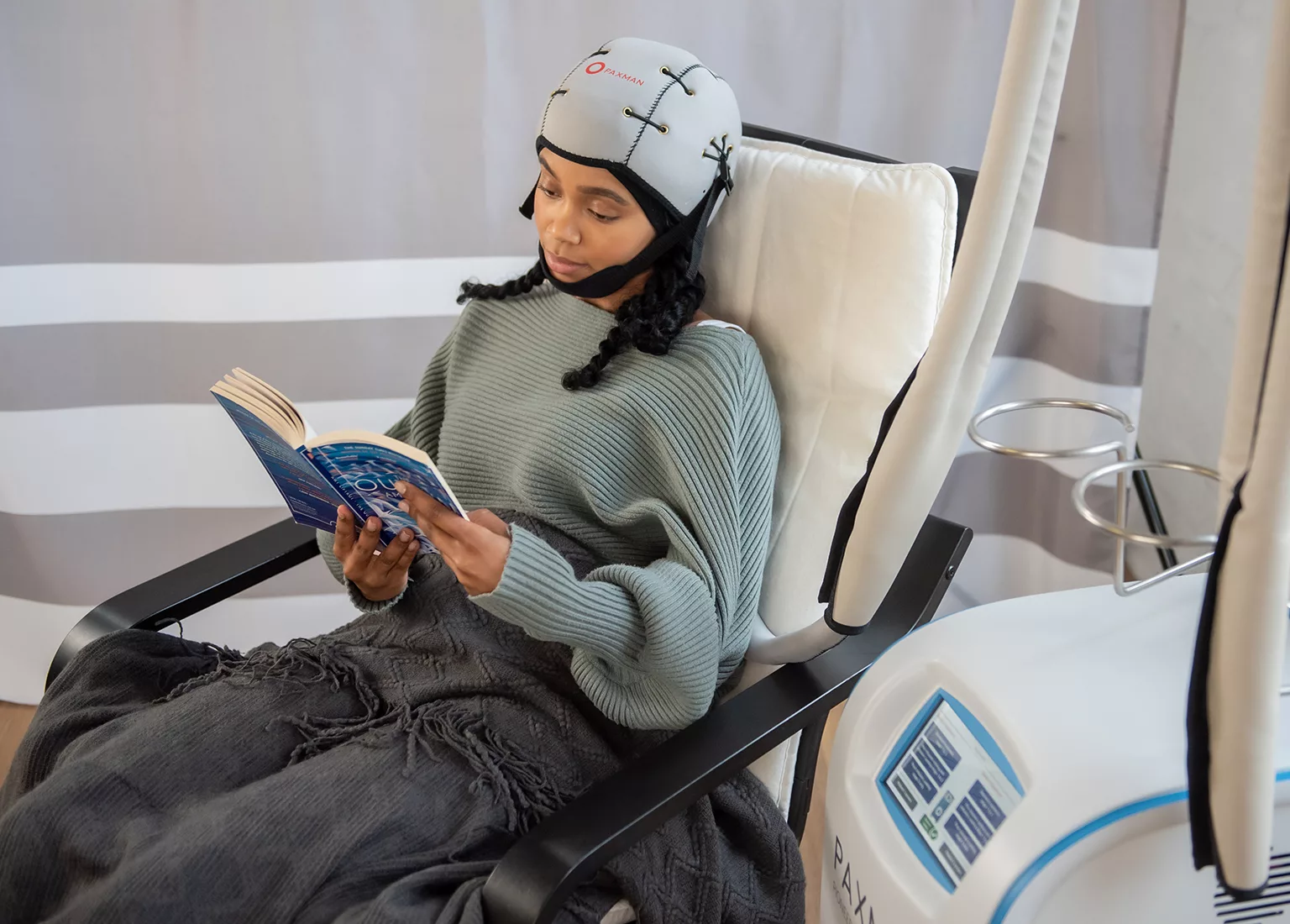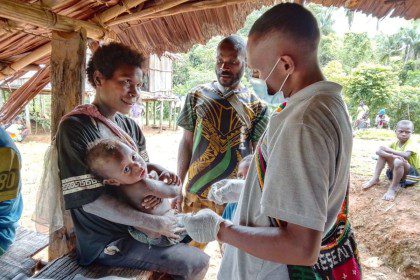MANAGING CHEMOTHERAPY HAIR LOSS
“US Food and Drug Administration (FDA) cleared, scalp cooling is proven to be efficacious, tolerable, and safe by multiple robust studies conducted all over the world. Achieving a standard of care at some of the world’s most trusted medical institutions, the treatment is listed in multiple cancer care guidelines and is clinically proven to encourage faster hair regrowth.”
This technology allows patients the opportunity to go through a traumatic event such as cancer with their sense of self still intact and not let any diagnosis, no matter how formidable, define them.
EXPANSION AND ACCESSIBILITY
Having expanded into the US market, PSC has begun to offer expansive patient services, including determining insurance coverage for patients and filing for pre-approval as part of its new buy-and-bill business model.
As access to PSCS in the US has been limited to an out-of-pocket expense, this new model will allow the technology to be taken advantage of by many more patients going through chemotherapy, as providers at facilities contracted with PSC under the new model are now able to bill the insurance on behalf of their patients.
Leading institutions around the US are already using this model, enabling patients such as Brooke to access previously unaffordable healthcare.

It really is our vision to ensure wherever you are in the world, no matter your socio-economic status, ethnicity, sex, or cancer type, that you have access to this technology to prevent or reduce CIA
Richard Paxman, CEO, Paxman Scalp Cooling
Regarding her experience, Brooke states, “I was trying to mentally prepare myself for the worst of losing my hair. It really came down to whether the PSCS was covered by my insurance; if I could get it covered, I would do it.”
Without these opportunities for patients like Brooke, who otherwise may not have been able to access the scalp cooling treatment, many would have found themselves without options and having to endure one more stressful aspect of cancer treatment.
The new buy-and-bill model has visibly improved patient access to scalp cooling regardless of their insurance coverage or financial situation.
From June 2022 to June 2023, 273 benefit investigations were completed by providers using Paxman Hub Services. With this, 219 patients received positive coverage, and 54 received no coverage; however, 48 were approved for the Patient Assistance Program (PAP). In summary, 80 percent of patients received positive insurance coverage, and 89 percent of patients with coverage were supported by PAP.
FINDING SOLIDARITY IN COMMUNITY
At its core, Paxman is about helping people gain back their confidence after a traumatic diagnosis.
As many who have been through similar experiences can attest, there is no better way to do so than through finding a supportive and empathetic community. Moreover, in this digitally focused future, social media is an invaluable tool.
FACEBOOK – The private Facebook Group for patients using scalp cooling has become a warm and supportive international community of over 8,000 patients.
COLDCAP.COM – As the world’s first scalp cooling website, coldcap.com aims to provide support to patients who choose to scalp from the point of diagnosis to the end of chemotherapy treatment and beyond.
“Within this, we created detailed tutorial videos that guide patients through fitting the scalp cooling cap which has a seen a notable impact on the efficacy of the treatment. Coldcap.com has facilitated patient education and a moderation of expectation, which has had a positive impact on patients and the clinical staff who support them,” – Richard Paxman, CEO, Paxman Scalp Cooling
SCALP COOLING SUMMIT – In May 2022, the first ever Scalp Cooling Summit was digitally hosted and included over 50 international speakers to share their experience and knowledge.
THE FUTURE OF PAXMAN SCALP COOLING
Being able to make a significant difference in the lives of patients already enduring a traumatic diagnosis is a courageous and worthy endeavour.
PSC is continuing to set the standard in terms of healthcare and technology for cancer patients, in order to ease their journey and help them continue to maintain their sense of identity throughout a traumatic ordeal.
With various goals for the near future, at the forefront is the continuation of branching out into the US market.

“Today, many patients either pay out of pocket or decline treatment due to high out of pocket costs. Further private and public insurance coverage shall change this, unlocking the true growth potential in the US,” Paxman tells us.
Additionally, China is high on the healthcare agenda for the remainder of the year. With a medical market that is set to overtake the US in the coming years, it is somewhere that cannot be ignored.
“We have reviewed the market for a number of years and have held off based on timing and opportunity cost, but we now believe it is the right time. A relationship has been built with a partner where we have a strong level of trust, and we are now working on the appropriate commercialisation and regulatory route.”
Additionally, PSC has been developing a portable compression and cooling product since 2019 that is aimed at preventing chemotherapy induced peripheral neurotherapy (CIPN), a related indication causing chronic, permanent nerve damage in hands and feet.
CIPN is a severe side-effect of chemotherapy drugs called taxanes, which are used to treat common cancers such as breast, lung, ovarian, and stomach cancer. CIPN affects approximately 1.4 million cancer patients globally every year.
CIPN causes progressive and often irreversible pain or sensitivity in the hands and feet of patients undergoing chemotherapy, leading to delays and discontinuation of treatment. It contributes to long-term poor patient well-being and significantly increases the economic burden in terms of healthcare costs. The condition also leads to a loss in work productivity, as affected patients are unable to return to work quickly.
The opportunity for the company is vast. We are only scratching at the surface, and we have so much more to do. A core focus will continue to be the US, with the goal of expanded patient access through reimbursement
Richard Paxman, CEO, Paxman Scalp Cooling
BUY-AND-BILL:
To expand the access of PSCS to individuals from every demographic, regardless of their insurance coverage or financial situation, enhanced services are being offered to US facilities contracted with PSC under the buy-and-bill model. The offering through Paxman Hub Services, which is facilitated through CoverMyMeds – a McKesson company – includes:
• Benefits investigation to determine patient insurance coverage and its level
• Prior authorisation assistance to support use of PSCS
• Appeal support to aid in PSCS use when coverage is denied by the insurance company
• PAP for free goods to qualifying patients
This allows many more patients the opportunity to access such a valuable and positive product that otherwise may not have been an option due to affordability.
UNMET CLINICAL NEED
Few to no prevention and treatment strategies exist for CIPN. Recently, cryotherapy (or cooling) of the limbs during chemotherapy has demonstrated a protective effect by preventing/reducing CIPN severity. However, the currently utilised frozen gloves or ice packs are not user-friendly, deliver unstable cooling, and can cause severe frostbite. There is a need for a medical device developed for patient use in a chemotherapy suite that can deliver stable cooling that is tolerable over the entire duration of the treatment.
The company has an ongoing research collaboration agreement with National University Cancer Institute, Singapore (NCIS), and received a research grant of SGD$1.57 million from the country’s National Research Foundation (NRF).
“The first phase of this trial in Singapore was completed in 2022. Results from the first phase have been positive – patients have reported efficacy of the Paxman Limb Cryocompression System (PLCS) in helping to prevent CIPN,” specifies Paxman.
This collaboration and expansion has allowed PSC to reach a wider range of international patients and further push the ways in which it can aid patients going through chemotherapy and the various side effects that they may experience.
PSC is taking on the ambitious journey of changing the face of cancer and improving the efficacy of scalp cooling for patients internationally. Through dedication and perseverance that stems from personal experience, PSC is at the forefront of scalp cooling technology and providing international access to all those who need it.
Tel: 8885 PAXMAN (888-572-9626)


















